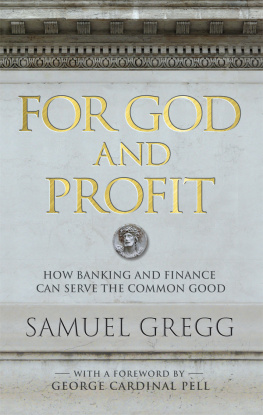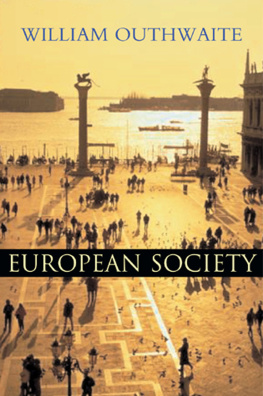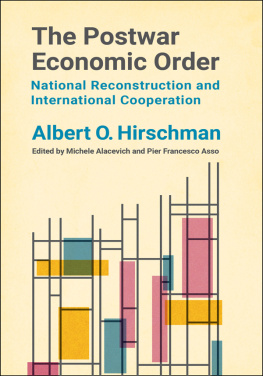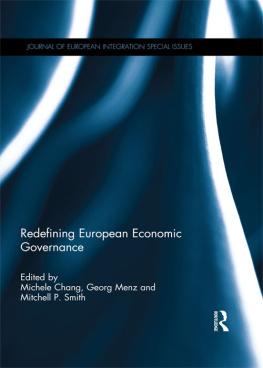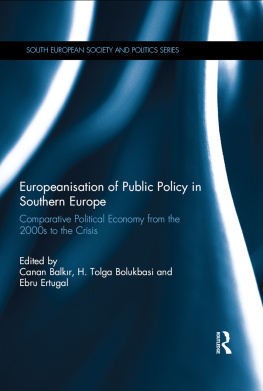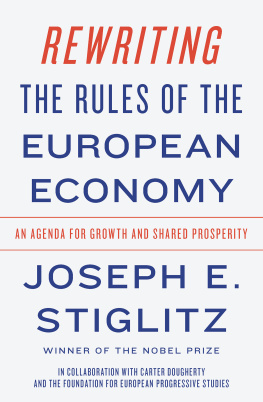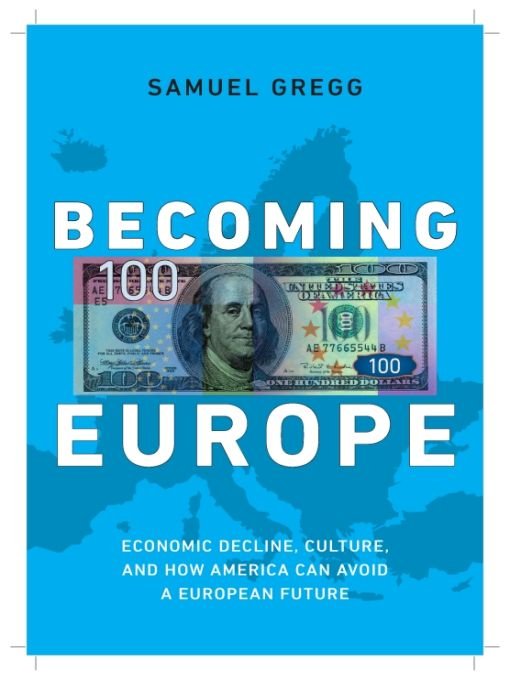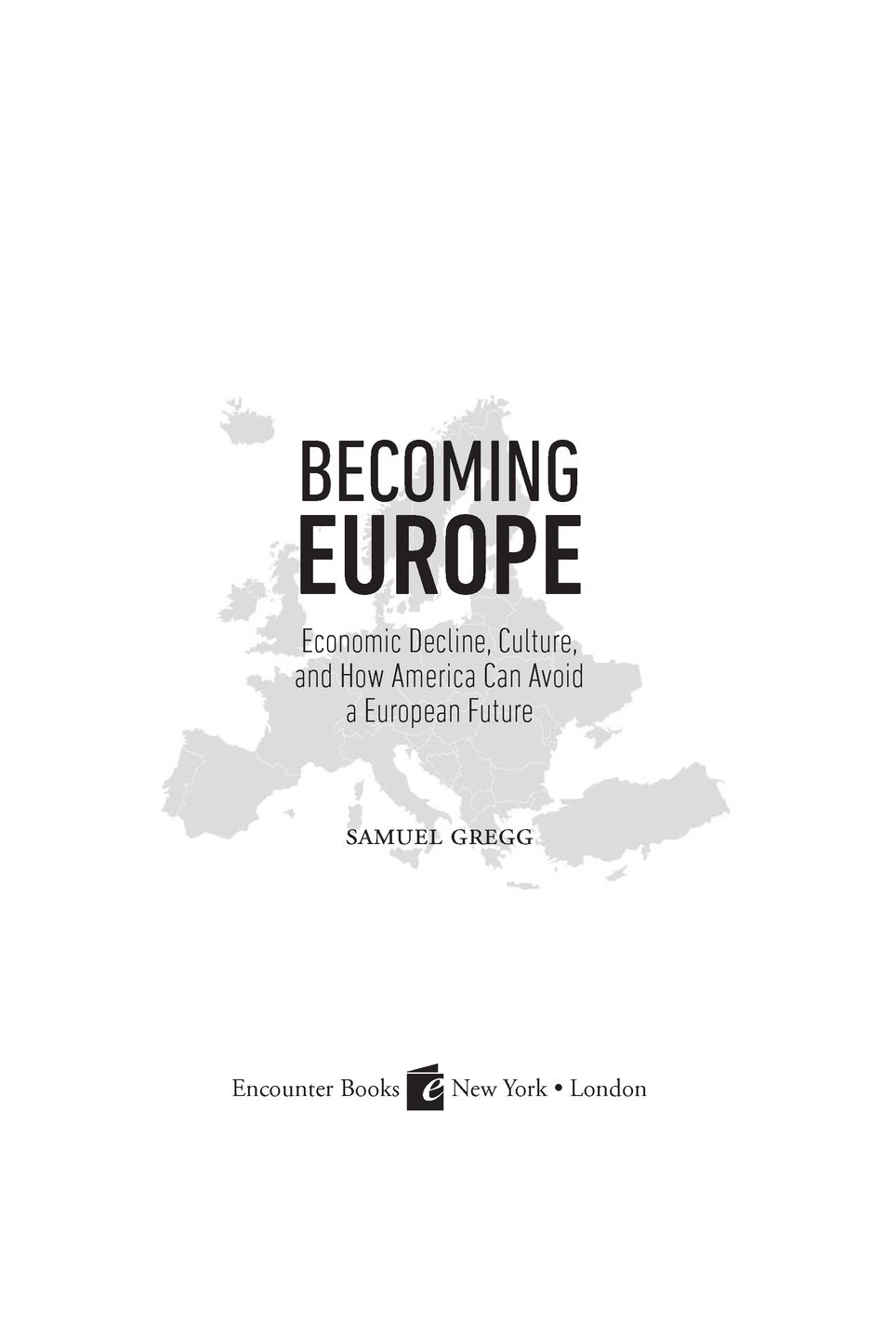Table of Contents
AS ALWAYS, FOR INGRID AND MADELEINE.
THE GREATNESS OF AMERICA LIES NOT IN BEING MORE
ENLIGHTENED THAN ANY OTHER NATION,
BUT RATHER IN HER ABILITY TO REPAIR HER FAULTS.
Alexis de Tocqueville
Acknowledgments
The topic of this book is one I have been thinking about for many years. But a book about America and Europe owes a great deal to the insights of friends, colleagues, and critics on both sides of the Atlantic. In Europe, thanks are owed to Antonio Arcones, Leszek Balcerowicz, Philip Booth, Jnos Csk, Joo Espada, Peter Gonda, Lord Brian Griffiths, Kishore Jayabalan, Oskari Juurikkala, Bishop Kstutis Kevalas, Jan Kos, Bishop Jean Lafitte, Heinrich Liechtenstein, Alexandre Pesey, Monsignor Martin Schlag, Andrea Schneider, Ondrej Socuvka, Manfred Spieker, Pawe Toboa-Pertkiewicz, Paula Olearnik, Rita Seabra Brito, Damian von Stauffenberg, Alexander Trachta, Raquel Vaz-Pinto, Andreas Widmer, Michael Zoeller, and Christof Zellenberg.
Likewise, in America, gratitude is extended to Dennis Bark, Alejandro Chafuen, John Couretas, Ross Emmett, Paul Kengor, Ted Malloch, Father C.J. McCloskey, Michael Matheson Miller, Kris Alan Mauren, Juha and Mary Ann Merikoski, John Moore, Michael Novak, Amity Shlaes, Father Robert A. Sirico, and James Stoner.
Some of the ideas in this book were developed in a number of forums, most notably the American Spectator, National Review, and Public Discourse. For that, I extend thanks respectively to Wlady Pleszczynski, Kathryn Jean Lopez, and Ryan Anderson.
Jeremy Beer is also thanked for his thoughts about the original proposal and for contributions to its development. In my native Australia, my thanks go to my extended familyJeannette Gregg, Nigel and Sarah Watson, Matthew and Susannah Merrigan and their wonderful childrenfor their continued love, despite the great geographical distance. Elena Leontjeva must be especially singled out for urging mefor several years nowto write something about the truths and goods we care about for a broader audience. My publishers, Encounter Books, are owed much for their willingness to commit to this project. Thank you to Roger Kimball, Nola Tully, Heather Ohle, Katherine Wong, and their team for seeing the potential for this book. Kacey Chuilli is also thanked for her editing work and for saving me from several errors.
My greatest debt, however, is recorded in the inscription.
Prologue
The lights are going out all over Europe: we shall not see them lit again in our lifetime.
SIR EDWARD GREY, BRITISH FOREIGN SECRETARY, AUGUST 3, 1914
It is uncertain whether Sir Edward Grey actually uttered these words on the eve of World War I. But whether or not he said them, they did reflect a sense of foreboding among many statesmen of the time: a conviction that Europethe very heart of Western civilizationwas about to launch itself upon a path of self-destruction from which there might be no return.
Almost one hundred years later and with the fading of time, it is hardly surprising many of us have lost a sense of what World War I did to Europe. The military death toll alone should give room for pause. The minimal estimates are chilling: Germany, 1,800,000 deaths; Russia, 1,800,000; France, 1,384,000; Austria-Hungary, 1,290,000; Britain, 743,000; Italy, 615,000; Romania, 335,000.
America did not enter the Great War until April 1917. This followed two and a half years of efforts by President Woodrow Wilson to maintain the United States neutrality. Between that time and the signing of the armistice that silenced the guns on the western front on November 11, 1918, forty-eight thousand Americans were killed in combat.
This last figure is a tragic number. Yet it was far less devastating than the human and material destruction inflicted upon Europe by four years of modern warfare that drew upon all the might of industrial capitalist economies turned against each other. No American city was occupied. America suffered no naval blockade. Trenches bristling with sharp wire and lethal machine guns were not dug for thousands of miles across American soil. And when it was over, millions of American soldiers went home. Whether they numbered among the victors or the defeated, Europeans remained, surrounded by living memories of what had been twentieth-century Europes first civil war.
Europe would never be the same. Within twenty-one years of the 1918 armistice, World War II took the European continent once again to the brink of self-immolation. Though Europe slowly recovered after 1945, its days as the center of world power were over. European colonial empires gradually disappeared from the globe. Until 1989, half of Europe was subject to Communist tyranny. Europes lights, it seems, did indeed go out.
When the victors and losers of World War I gathered to make peace in Versailles, the seventeenth-century palace built by Frances Sun King, Louis XIV, the agenda went beyond issues such as border changes, the recognition of new nations, or the carving-up of Germanys former colonial possessions. An intense awareness of dramatic economic changes in the offing permeated the Peace Conference. Socialist and Marxist political movements, characterized by a deep hostility to capitalism, were in the ascendancy. Lenins Bolshevik revolutionaries had seized power in Russia. Germanys government was in the hands of Europes largest social democratic party.
Even without these developments, economic issues were going to be central to the negotiations at Versailles. As well as ceding territory, Germany and the defeated nations were expected to pay reparations to the victors. This was understood as punishment of the losers and compensation for the winners. The sheer scale of reparations demanded by the Allied powers, however, was a severe shock to Germany. It quickly became a festering source of burning resentment among Germans of all political stripes. Germanys final reparations payment was not to be made until October 4, 2010.
Germans were not alone in their dismay. The burden of reparations that the Allies wanted to impose upon Germany was just as astonishing to a small number of officials serving as members of the Allied delegations at Versailles. One such delegate, a young British civil servant named John Maynard Keyneslater to become perhaps the twentieth centurys most famous and influential economistwas so appalled that he resigned from the British Treasury in protest. Within months of doing so, in 1919 Keynes vented his misgivings in the book that first gave him celebrity status: The Economic Consequences of the Peace.
Read by thousands across Europe and America, Keyness short and frankly polemical text shocked and titillated British, European, and American opinion with its pithy, even irreverent portraits of the statesmen who had led the Allies to victory. Figures such as Britains David Lloyd George (ill-informed), Frances Georges Clemenceau (dry in soul, empty of hope), and Americas Woodrow Wilson (slow and unadaptable) were presented as men with feet of clay, veering between utopian idealism and Machiavellian cynicism. Yet beneath the iconoclasm permeating Keyness book was a far more serious message: that the economic conditions being imposed upon the defeated nations by these politicians were economically foolish, morally indefensible, likely to destabilize an already shattered German economy, and fertile ground for demagogues of the Left and Right.


